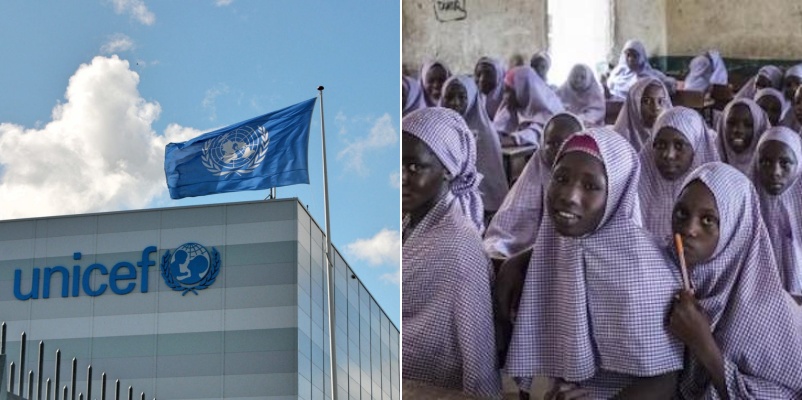The United Nations Children’s Funds in collaboration with Foreign Commonwealth and Development Office in Nigeria has stated that despite the progress made, Nigeria is not likely to achieve the global agenda of universal inclusive and equitable quality basic education for all school-age children by 2030 if the current very low public investment in the education sector remains the same.
This was made known on Wednesday by a Communication Specialist at UNICEF field office, Muntaka Muntaka at a media dialogue on girls’ education in Katsina.
Muntaka disclosed that Students Learning Outcomes Assessment, which completed six cases study states by the independent evaluation in 2021 revealed that the people’s proficiency in literacy is higher in only Enugu State (603.4) against a benchmark of 500.
It was, however, lower in the remaining five states of Kano (488.77), Zamfara (443.38), Kwara (493.56), and the rest.
On the other hand, only two states have higher scores of pupils’ proficiency in numeracy, Enugu (599.46) and Kwara (565.28) against the benchmark of 500.
While other remaining states have lower pupil’s proficiency in numeracy, Kano (463.14), Zamfara (437.04) and Katsina (476.7).
For Nigeria to address the challenge, the media dialogue emphasised that the Government must demonstrate strong will, as well as create substantial innovative fiscal space.
Also, it called for policy reforms, so as to strengthen educational planning and coordination among various actors at all levels.
Among others, the Media Dialogue on Girls’ Education called for a review of existing policies and laws, with the objective to establish a strong accountability framework among key actors at the Federal and State levels.
The UNICEF representative said,“Policy action is critically needed to address and mitigate the dearth of financial data concerning basic education.
“Policy makers should give a clear policy direction and guidance on how the PTA levies will be applied in schools, so as not to constitute a serious barrier to school enrolment.”
